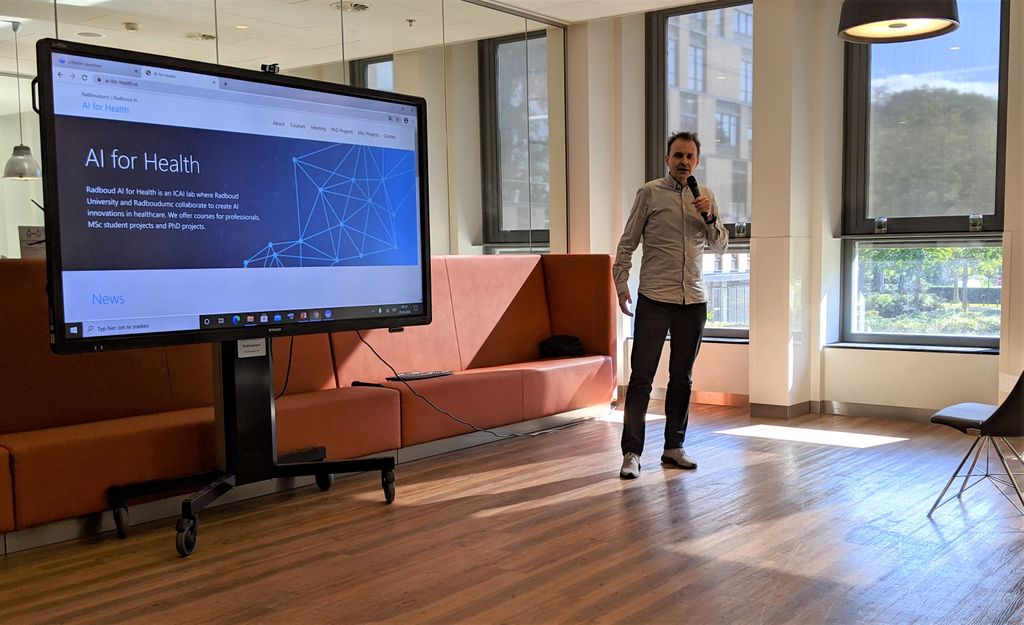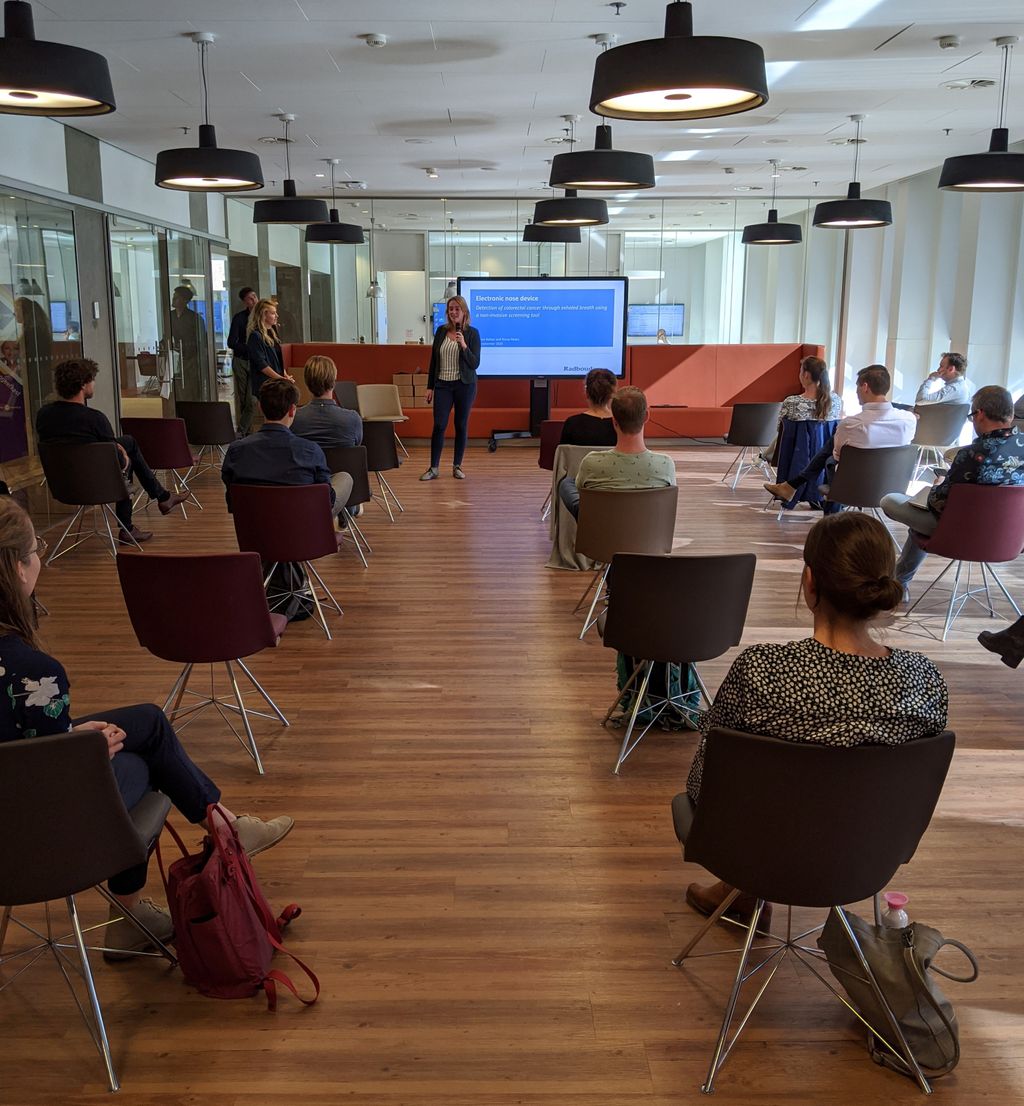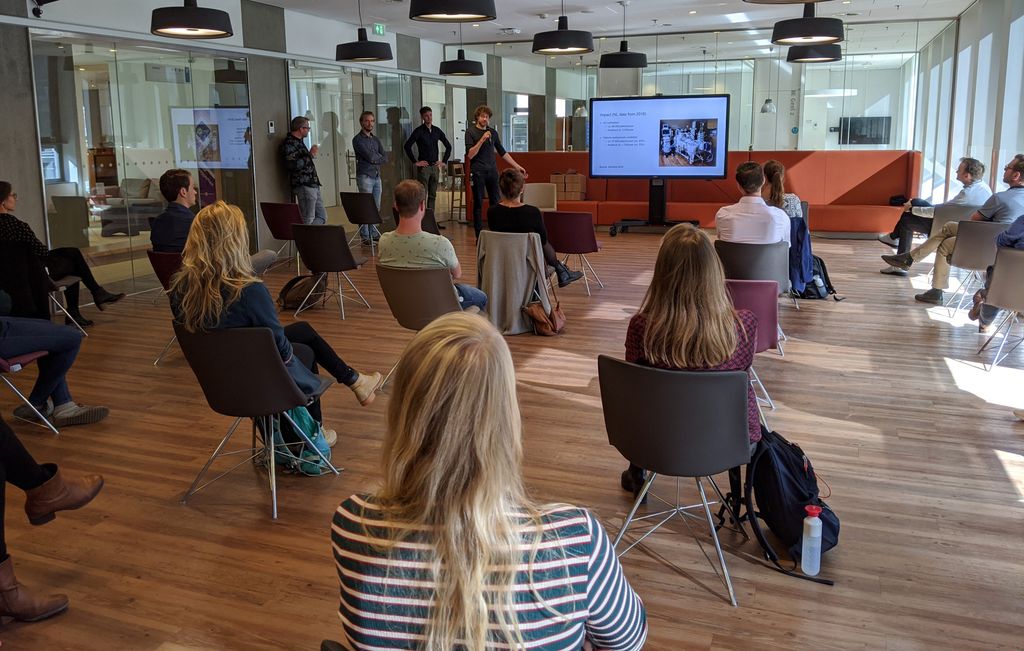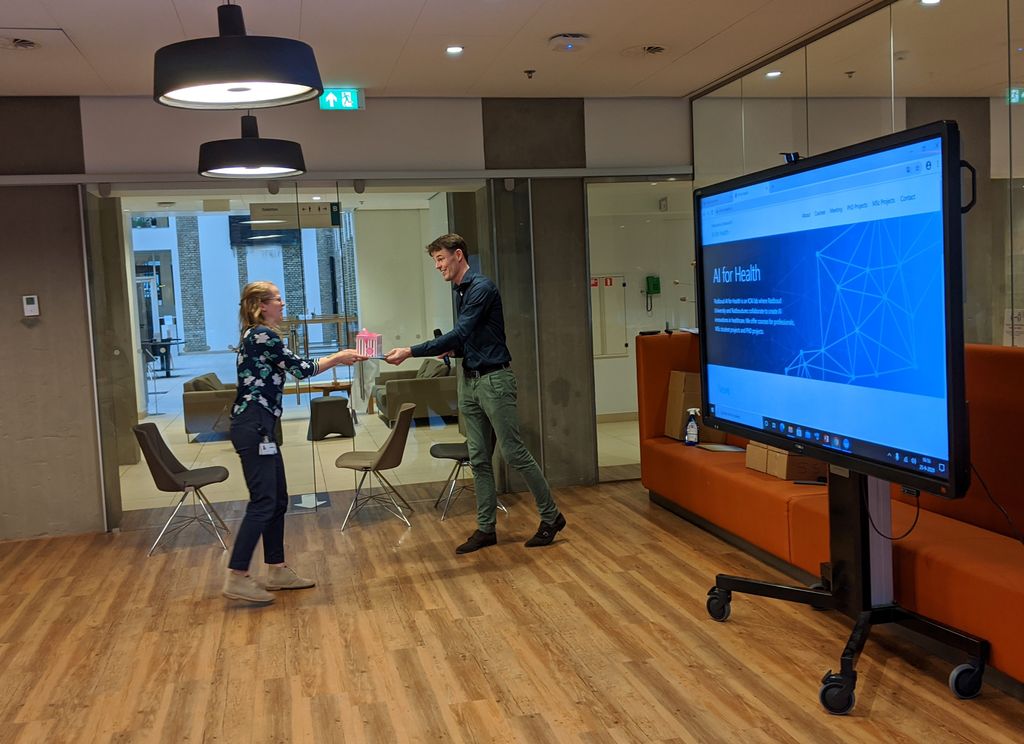Final presentations first AI for Health course

Friday, September 25, 2020, the first AI for Health course concluded with a meeting where all participants presented their AI projects' results. About 25 Radboudumc employees from different backgrounds followed the first course. The second edition has now started and will run until February 2021. The third edition is scheduled to commence that month, and if you are interested, you can already send an e-mail to aiforhealth@radboudumc.nl.
Radboudumc organizes the 16-day course together with the Jheronimus Academy of Data Science (JADS) in Den Bosch. As part of the course, teams of participants perform an AI project. The presentations of these projects demonstrated the diversity of AI applications in healthcare.

Esmee Bakker and Yonne Peters presented Electronic nose device: detection of colorectal cancer through exhaled breath using a non-invasive screening tool. Electronic noses analyze volatile organic compounds in air, in this case, air breathed out by people suspected of colorectal cancer. These e-noses are becoming cheaper and are equipped with more sophisticated sensors. Esmee and Yonne applied different machine learning approaches to the e-nose measurements but concluded that the performance was not yet good enough to consider integrating this in the colorectal cancer screening in The Netherlands.

Sabine van den Akker, Tessel Galesloot, Luc Evers, Ruud van Kaam and Tim Frenzel described their work on Predicting re-intubation in critically ill patients. Many patients in ICU where the tube has been removed need to be re-intubated at a later point in time. A model that accurately computes the probability that re-intubation will be needed could improve patient management. The team showed that data collection at the ICU is challenging, and careful data cleaning is required before machine learning can be applied.
Ilse Spenkelink, Tom Perik, Loes van der Zanden, Gerben Lassche and Chris de Korte worked with deep learning techniques for image classification in AI for classification of breast cancer in 3D ultrasound data. Building upon standard 2D convolutional networks, they developed a pipeline to classify 3D ultrasound patches.
Lisa Hofste, Pascal van Nispen, Milou Schuurbiers and Janet Vos presented Fragmentomics. The team requested all data from a recent Nature publication that introduced a method to diagnose different types of cancer from measurements of cell-free DNA present in the blood. They reproduced the machine learning experiments in the paper and showed that different classifiers obtained even slightly better performance.
Amon Heijne, Daan de Jong, Daphne Everaerd and Laurens Verscheijden reported on Electroconvulsive therapy: predicting the seizure. Patients who receive this treatment undergo multiple sessions. Choosing the right settings for each session is difficult, so sessions sometimes need to be repeated. The team analyzed whether it is possible to better predict the optimal setting based on previous sessions. They concluded that the results they obtained were not yet good enough, but adding additional clinical features might improve the prediction.
Finally, Lex Dingemans, Tom Loonen, Anouk van der Schot and Mirjam Schaap addressed Automated clinical scoring in psoriasis. The severity of disease in psoriasis patients is often quantified with the PASI score. The team presented the first steps towards automatically assessing one aspect of this score from photographs using deep convolutional neural networks. Mirjam Schaap also recently received a Radboud AI Voucher to continue this research.

Joran Lokkerbol, who led the AI for Health course, handed out certificates to all course participants, with a special recipe box to make your own Bossche Bol.
← Back to overview